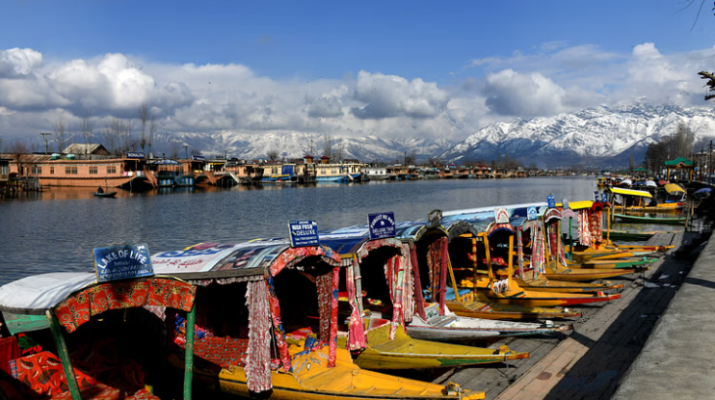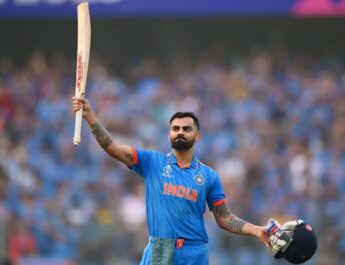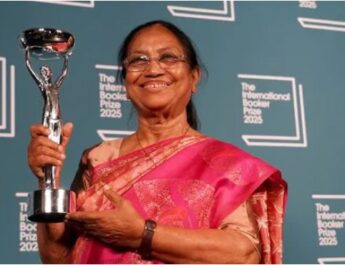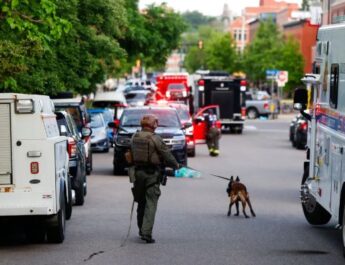The Commission constituted by the Center regarding the delimitation of the Assembly and Lok Sabha seats of Jammu and Kashmir has submitted its final report. The final decision on these proposals is to be taken by the Central Government. This has cleared the way for the holding of assembly elections in Jammu and Kashmir. The changes suggested by the Delimitation Commission are being opposed by the rest of the parties in the Valley except the BJP.
What is the new delimitation proposal for Jammu and Kashmir assembly seats? Why is it being opposed? What is its importance in the politics of Jammu and Kashmir?
What is the new delimitation proposal for Jammu and Kashmir?
In its report, the Delimitation Commission has proposed to increase a total of 7 assembly seats, including 6 in Jammu and 1 assembly seat in Kashmir. According to these proposals, the assembly seats in Jammu and Kashmir will now increase from 83 to 90, while the Lok Sabha seats will remain five.
A major change has also been made in the composition of the existing assembly seats in the state. According to the proposals, there is a proposal to increase the assembly seats of Jammu from 37 to 43 and that of Kashmir from 46 to 47.
One new seat each is to be added in 6 districts of Jammu region- Kishtwar, Samba, Kathua, Doda Rajouri and Udhampur districts, while one seat will be added in Kupwara in Kashmir region.
Actually, before the implementation of Article 370 in 2019, there were 87 assembly seats in the Jammu and Kashmir Legislative Assembly, but after this 4 seats have gone to Ladakh. That is, now there are 83 seats left in the Jammu and Kashmir Legislative Assembly. Which is now to be increased to 90.
According to the Jammu and Kashmir Reorganization Act, 2019, it is proposed to increase the total number of assembly seats of Jammu and Kashmir from 107 to 114. Out of these 114, 24 seats are reserved for Pakistan Occupied Kashmir (PoK), which will remain vacant.
For the first time, 9 seats have been reserved for Scheduled Tribes (ST), out of which 6 seats are earmarked for Jammu and three seats for Kashmir.
For the first time, it has been recommended to reserve 2 seats for Kashmiri Pandits. At the same time, it has been recommended to reserve some seats for the displaced refugees of PoK.
There is a recommendation to change the names of many assembly seats in the delimitation. Gol-Arnas constituency in Reasi district has been renamed as new seat Shri Mata Vaishnodevi.
Paddar assembly seat in Jammu region has been renamed as Paddar-Nagseni, Kathua North as Jasrota, Kathua South as Kathua, Khor as Chhamb, Mahore as Gulabgarh, Tangmarg as Gulmarg, Junimar as Zaidibal, Sonar as Lal Chowk and Darhal as Budhal. Is.
The number of districts in Jammu and Kashmir has increased from 12 to 20 since the last delimitation in 1995.
No change of Lok Sabha seats, change in the area
In Jammu and Kashmir, only 5 Lok Sabha seats- Baramulla, Srinagar, Anantnag-Rajouri, Udhampur and Jammu have been retained, but the boundaries of Lok Sabha seats have been redrawn.
The boundaries of the seats of Anantnag and Jammu have been changed. The Pir Panjal region of Jammu has now been linked with the Anantnag seat of Kashmir. The Pir Panjal comprises the districts of Poonch and Rajouri, which were earlier part of the Jammu parliamentary seat. A Shia-dominated area of Srinagar parliamentary constituency has been shifted to Baramulla parliamentary seat.
Why is there opposition to the new delimitation proposal of Jammu and Kashmir?
The Congress and the National Conference have raised the question that when the delimitation of the rest of the constituencies across the country has been put on hold till 2026, then why is there a separate delimitation for Jammu and Kashmir.
In fact, the process of delimitation in the entire country has been put on hold till 2026 and re-delimitation of assembly constituencies is happening only in Jammu and Kashmir.
Another reason for opposing the delimitation of Jammu and Kashmir is political. In fact, political parties are criticizing the move to increase the number of seats in Muslim-majority Kashmir and increase more seats in Hindu-majority Jammu in terms of population.
How will Jammu with Hindus now dominate Kashmir with Muslims?
The parties of Kashmir allege that through the new delimitation, the BJP wants to shine its political by giving a political edge to the Hindu-majority Jammu.
At present, there are 46 seats in the Muslim-majority Kashmir of Jammu and Kashmir and 44 seats are needed for a majority. Jammu, a Hindu-dominated area, has 37 seats. In such a situation, most of the Chief Ministers have been made from Kashmir.
This math will change after delimitation. According to the new delimitation, out of the total 90 seats in Jammu and Kashmir, now 43 will be in Jammu and 47 in Kashmir. Also, it has been suggested to reserve 2 seats for Kashmiri Pandits.
After these changes, 44% of the population of Jammu will vote in 48% of the seats. 56% of the people living in Kashmir will vote in the remaining 52% seats. Till now 56% of the people of Kashmir used to vote in 55.4% of the seats and 43.8% of the people of Jammu used to vote in 44.5% of the seats.
The opposition alleges that in the new delimitation, the six seats that are proposed to be increased for Jammu, most of them are Hindu-dominated districts. As of 2011 India census, Kathua, Samba and Udhampur are Hindu majority. The Hindu population of Kathua is 87%, that of Samba and Udhampur is 86% and 88% respectively. In Kishtwar, Doda and Rajouri districts also, Hindus constitute 35 to 45% of the population.
In the 2008 Jammu and Kashmir Assembly elections, the BJP won 11 out of 87 seats, but in the next elections held in 2014, the BJP became the second largest party with 25 seats. In the 2014 assembly elections, the BJP had won all its 25 seats from the Jammu region, while its account was not even opened in Kashmir.
In such a situation, it is believed that the addition of 6 more seats in Jammu in the delimitation will strengthen the BJP. At the same time, this is likely to harm the PDP and the National Conference.
If Poonch and Rajouri continue in Jammu Lok Sabha seat, it may have to be declared as ST Reserve Lok Sabha seat. This will help BJP to consolidate Hindu vote. The reorganization of Baramulla will strengthen the Shia vote. This will benefit Sajjad Lone’s People’s Conference. Sajjad is considered close to the BJP.
On what basis was the new delimitation of Jammu and Kashmir done?
According to the Jammu and Kashmir Reorganization Act, the main basis of delimitation should be the 2011 census, but the commission says that it also took into account the factors like area of the state, geographical conditions, distance from the border for the purpose of delimitation.
As per 2011 census, the population of Kashmir (68.8 lakh) is 15 lakh more than that of Jammu (53.3 lakh). According to the new delimitation proposal, if the assembly seats in Jammu and Kashmir are rescheduled, the proportion of the population of Kashmir will be 1.46 lakh as compared to the population of 1.25 lakh in Jammu.
History of delimitation in Jammu and Kashmir?
Before the abrogation of Article 370, the delimitation of the Lok Sabha seats of Jammu and Kashmir was done by the Center. The assembly seats were held by the state government under the Jammu and Kashmir Representation of the People Act, 1957.
After the removal of Article 370 in 2019, now the right of delimitation of both the Jammu and Kashmir Assembly and Lok Sabha seats has gone to the Center.
The last delimitation in Jammu and Kashmir was done in 1995, when President’s rule was in force there. Then the seats of the Jammu and Kashmir Legislative Assembly were increased from 76 to 87, in which the seats of Jammu were increased from 32 to 37 and the seats of Kashmir were increased from 42 to 46.
In 2002, the National Conference government of Jammu and Kashmir passed a resolution to postpone the delimitation of the state till 2026.
What is delimitation?
Delimitation is the redrawing of the boundaries of an assembly or a Lok Sabha constituency to reflect changes in the population of an area.
The Delimitation Commission is an independent body and executive and political parties cannot interfere in its functioning.
The Commission is headed by a retired Supreme Court Justice and includes the Chief Election Commissioner or Election Commissioner and State Election Commissioners.
What is the Delimitation Commission for Jammu and Kashmir?
After the abrogation of Article 370, the Modi government constituted a Delimitation Commission on 6 March 2020 to re-delineate the Assembly and Lok Sabha constituencies in Jammu and Kashmir. This commission was to submit its report in a year, but due to Corona, the deadline kept increasing and finally it submitted its final report on 5 May 2022.
The Delimitation Commission is headed by retired Supreme Court judge Ranjana Prakash Desai. Its other members include Chief Election Commissioner Sushil Chandra, Senior Deputy Election Commissioner Chandra Bhushan Kumar and Jammu and Kashmir Election Commissioner KK Sharma. Apart from this, five MPs from Jammu and Kashmir are its associate members.




